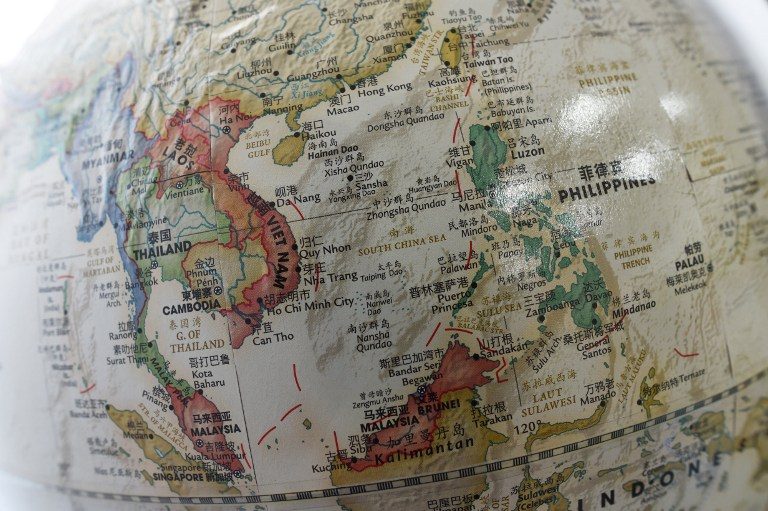SUMMARY
This is AI generated summarization, which may have errors. For context, always refer to the full article.

BRUSSELS, Belgium – The EU urged China and the Philippines to settle peacefully their dispute over the South China Sea but stopped short of pushing Beijing to abide by an international tribunal’s ruling against Beijing’s claims.
The watered-down statement, which came after days of arguments among member states, did not follow the lead of the United States in specifically calling on China to honor the decision by the UN-backed tribunal in The Hague.
EU foreign policy chief Federica Mogherini said in a statement that the bloc’s member states “acknowledge” the ruling but said the EU does not take a position on sovereignty rows.
She added that the union “expresses the need for the parties to the dispute to resolve it through peaceful means, to clarify their claims and pursue them in respect and in accordance with international law.”
“The EU calls upon the parties concerned to address remaining and further related issues through negotiations and other peaceful means and refrain from activities likely to raise tensions,” Mogherini said.
The statement came after days of wrangling over wording as eastern EU countries, including Slovenia and Croatia which also have territorial disputes before the tribunal, diplomats said.
“Two member states (Croatia, Slovenia) have a principle problem with arbitration judgements,” an EU diplomat told journalists on condition of anonymity.
“It is a difficult balancing act. We have a legal position, but on the other hand we need China for a whole bunch of other topics,” the diplomat said before the statement was agreed.
China asserts sovereignty over almost all of the strategically vital waters, despite rival claims from its Southeast Asian neighbors, most notably the Philippines.
China’s claims, which include waters approaching neighboring countries, are based on a vaguely defined “nine-dash-line” found on a 1940s Chinese map.
The row has embroiled the United States, which has deployed aircraft carriers and a host of other vessels to assert freedom of navigation in the waters – through which a third of the global oil trade passes.
The US put itself on a collision course with China on Tuesday when it described the ruling as “final and legally binding”. – Rappler.com
Add a comment
How does this make you feel?
There are no comments yet. Add your comment to start the conversation.